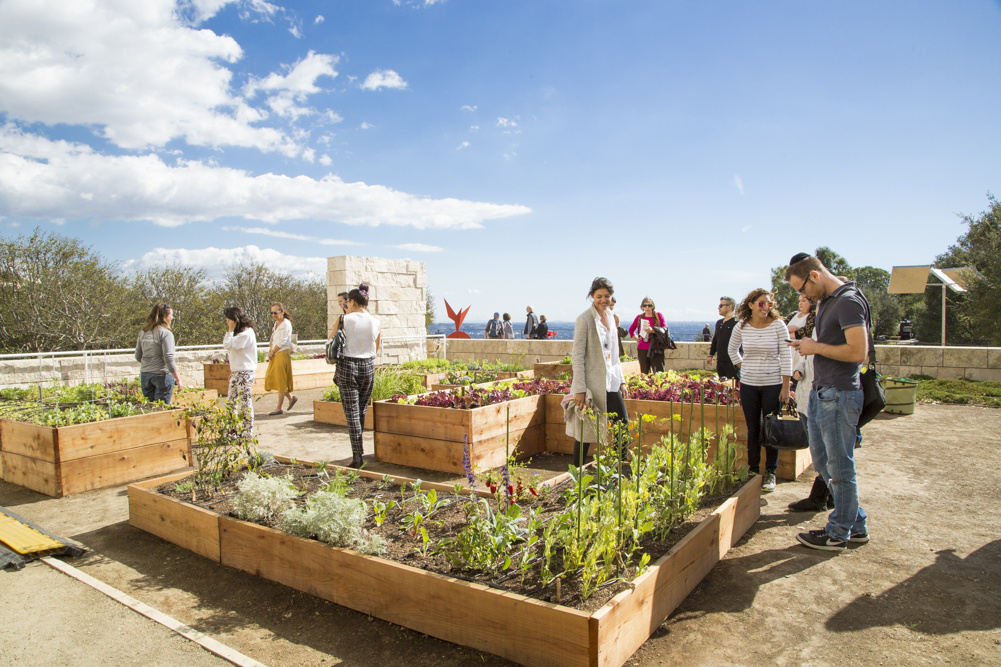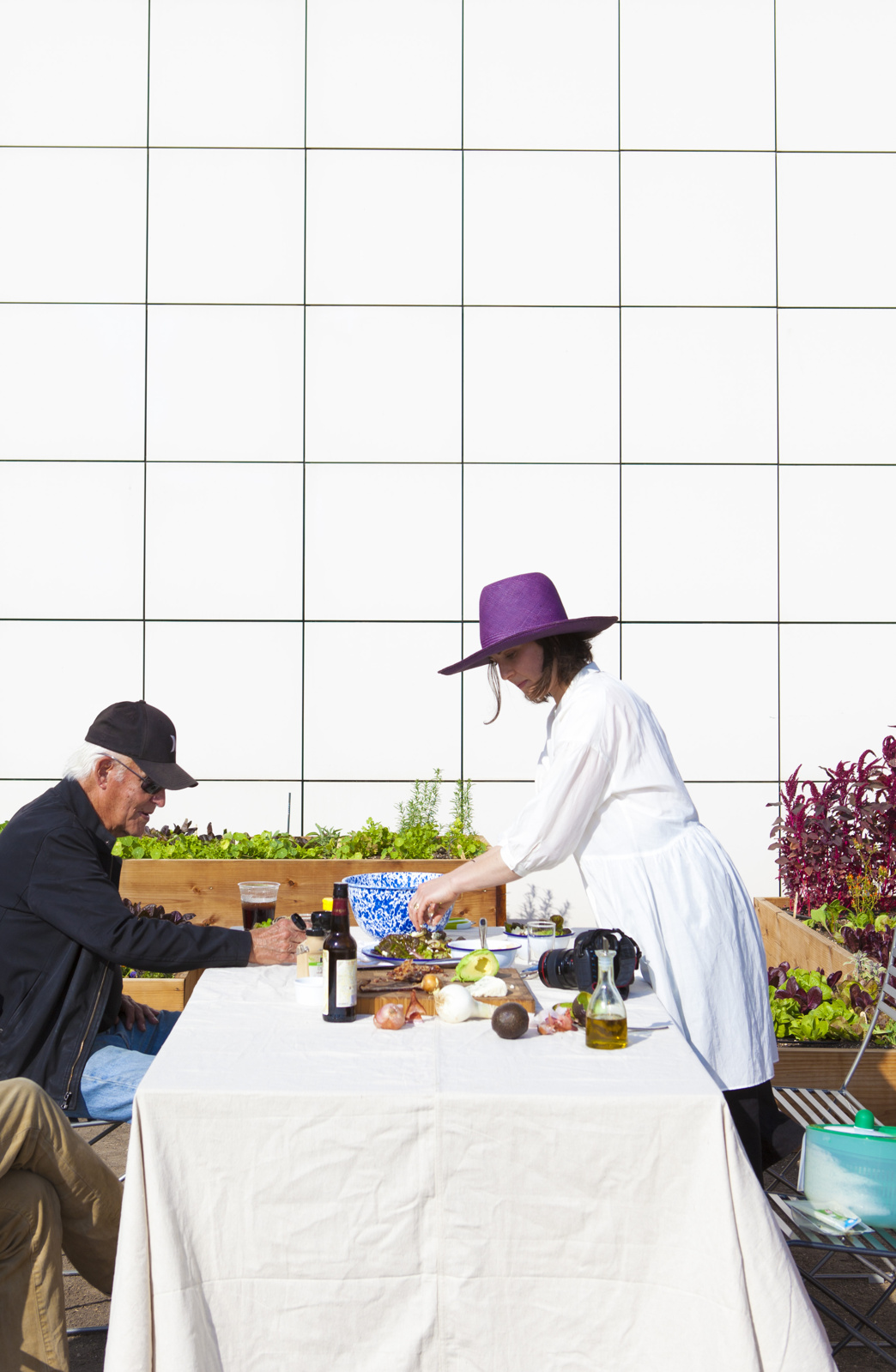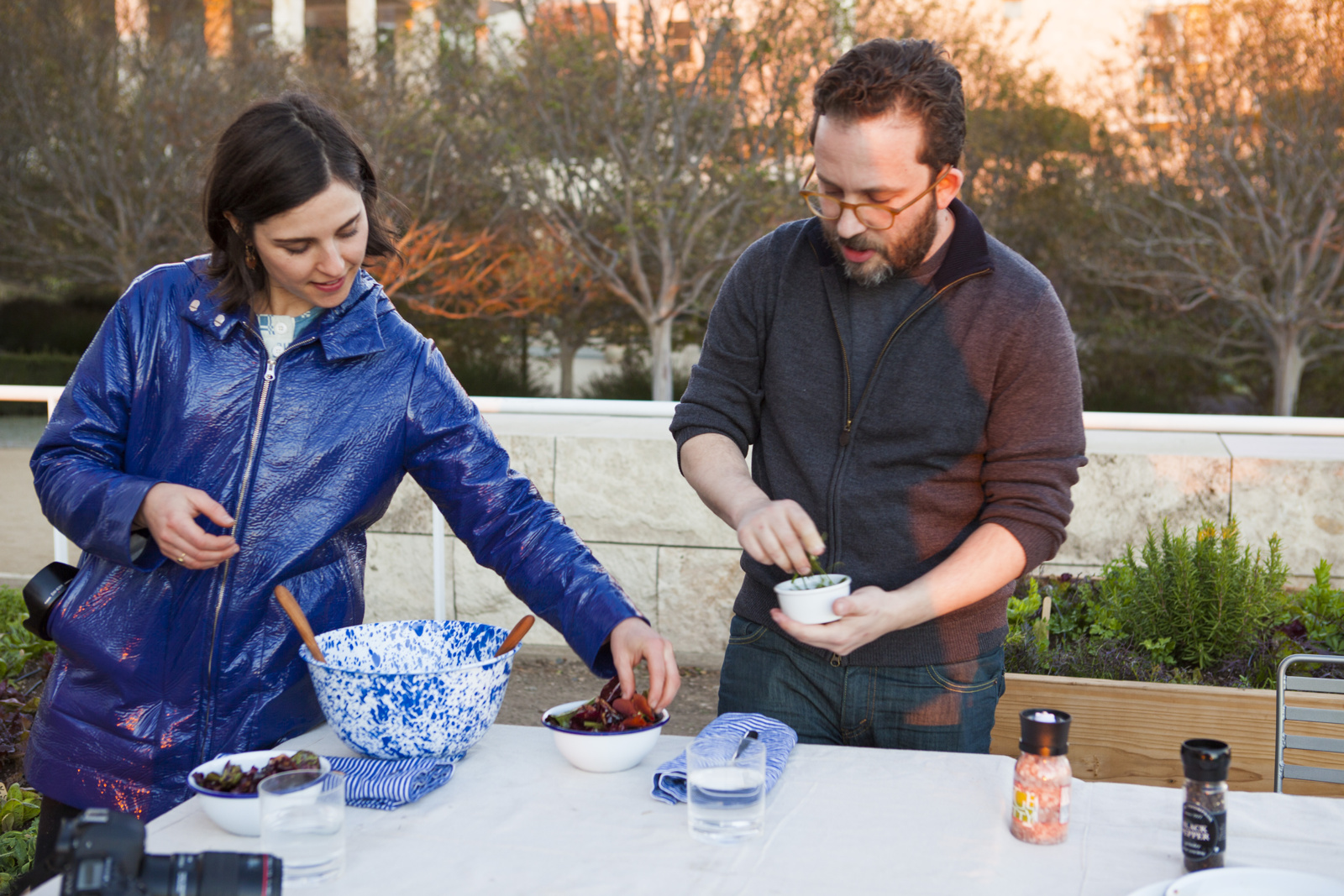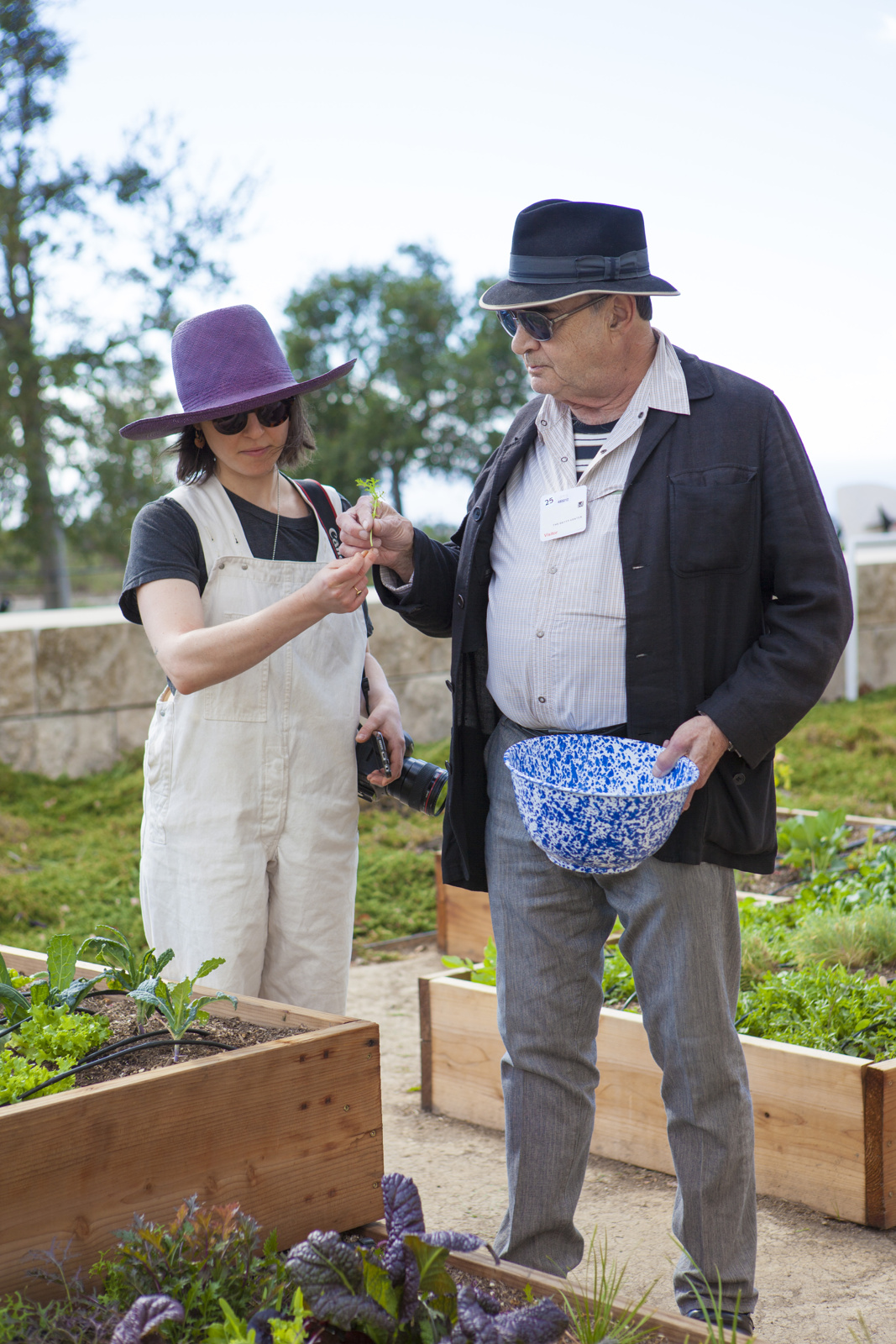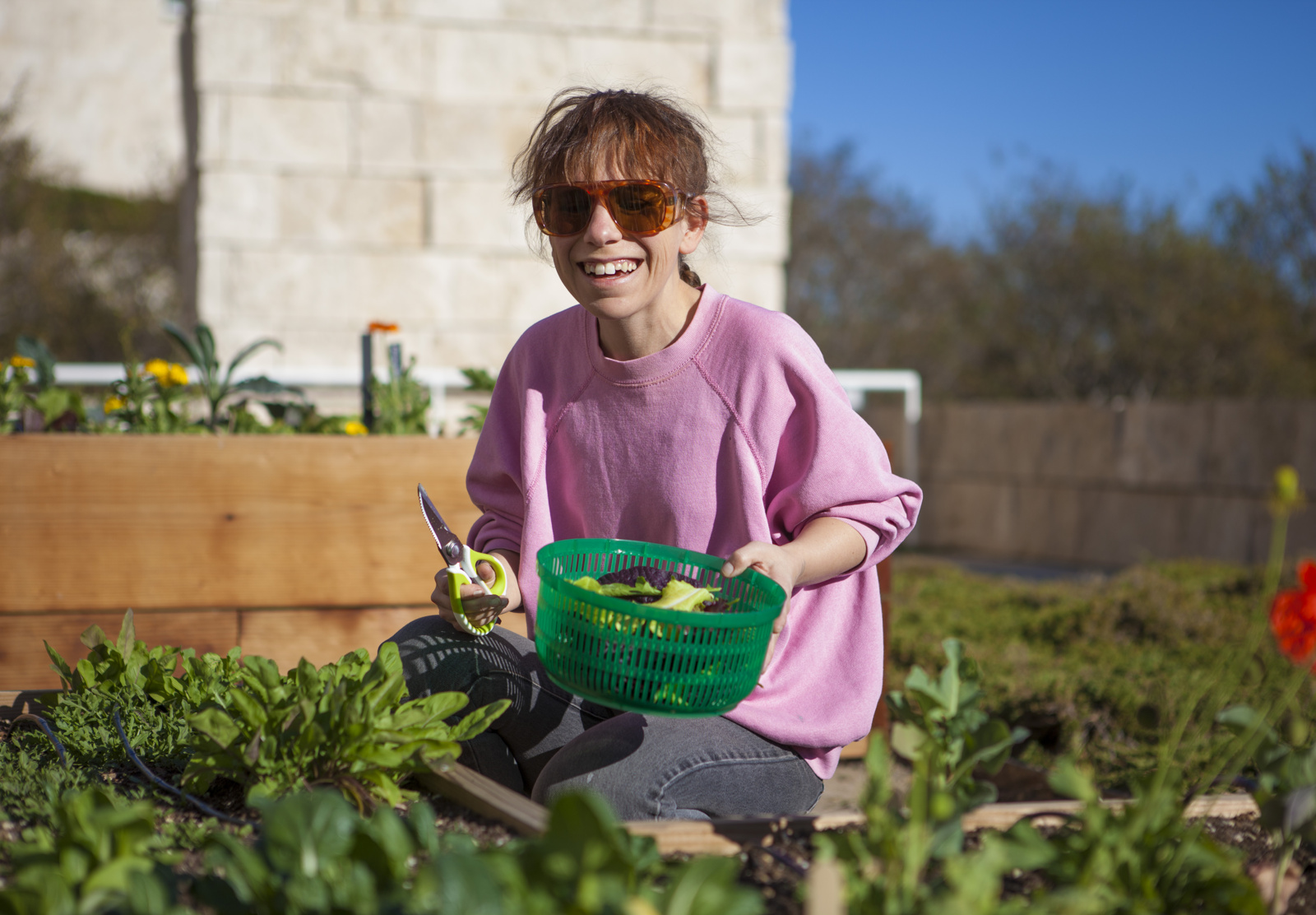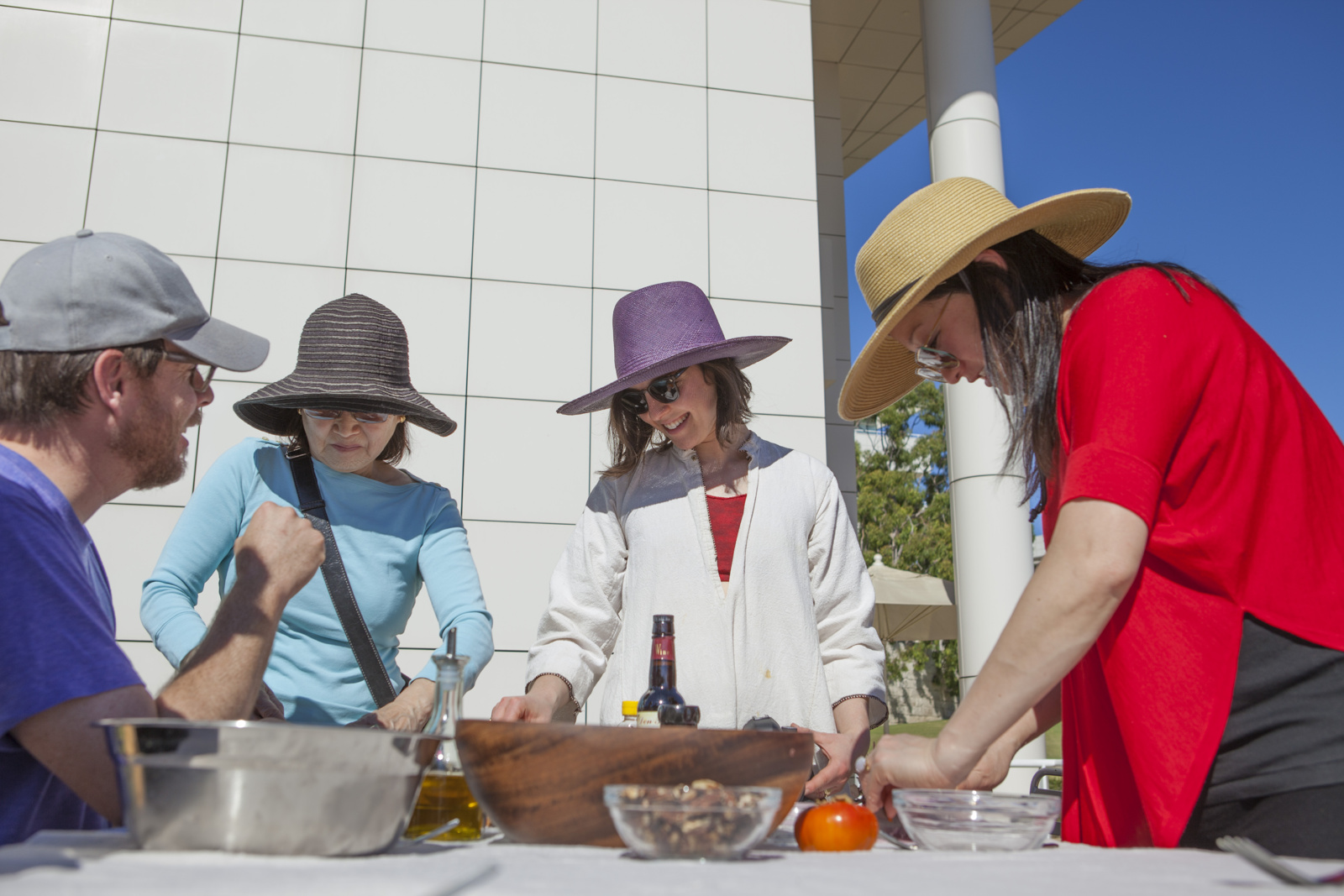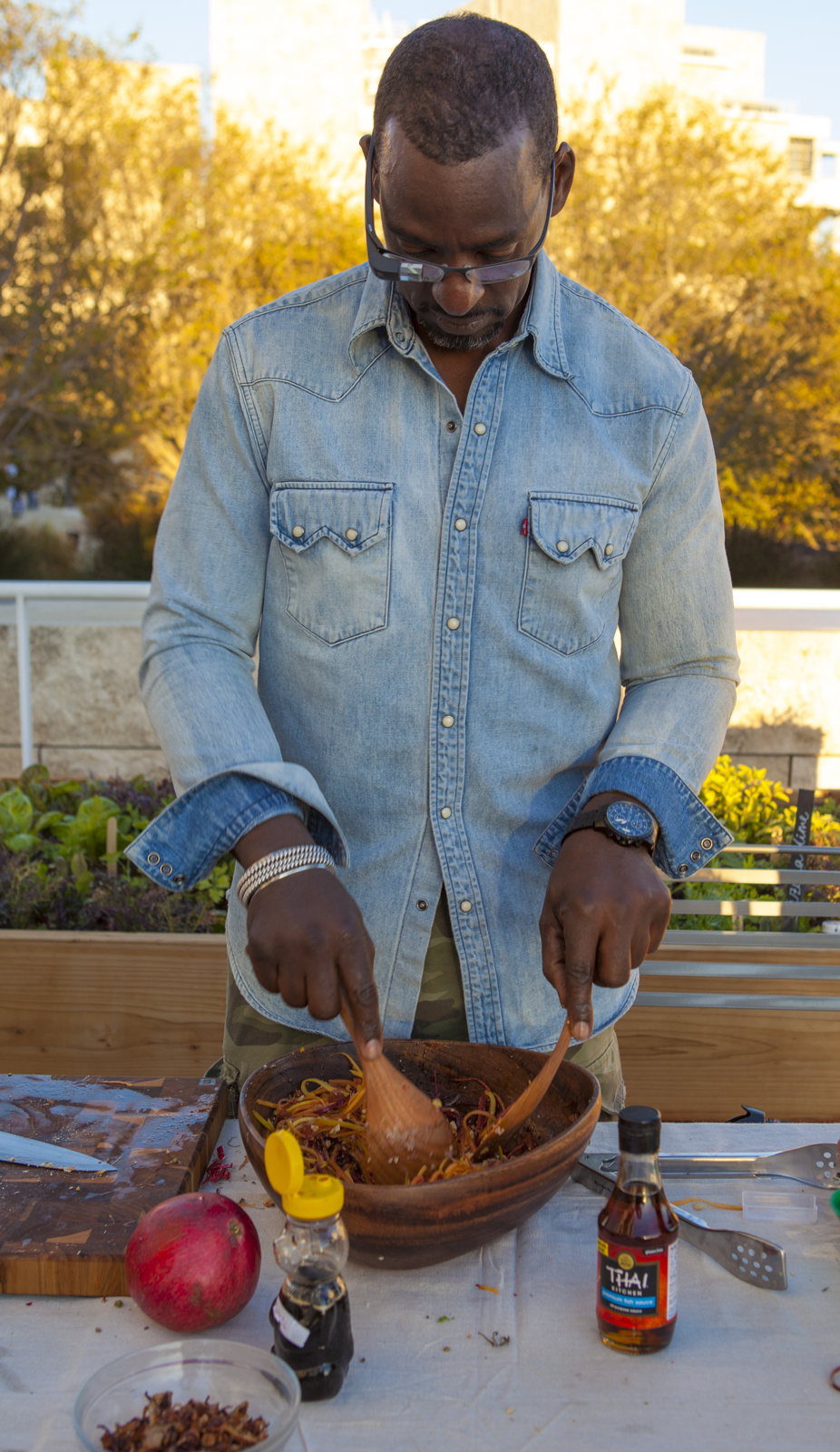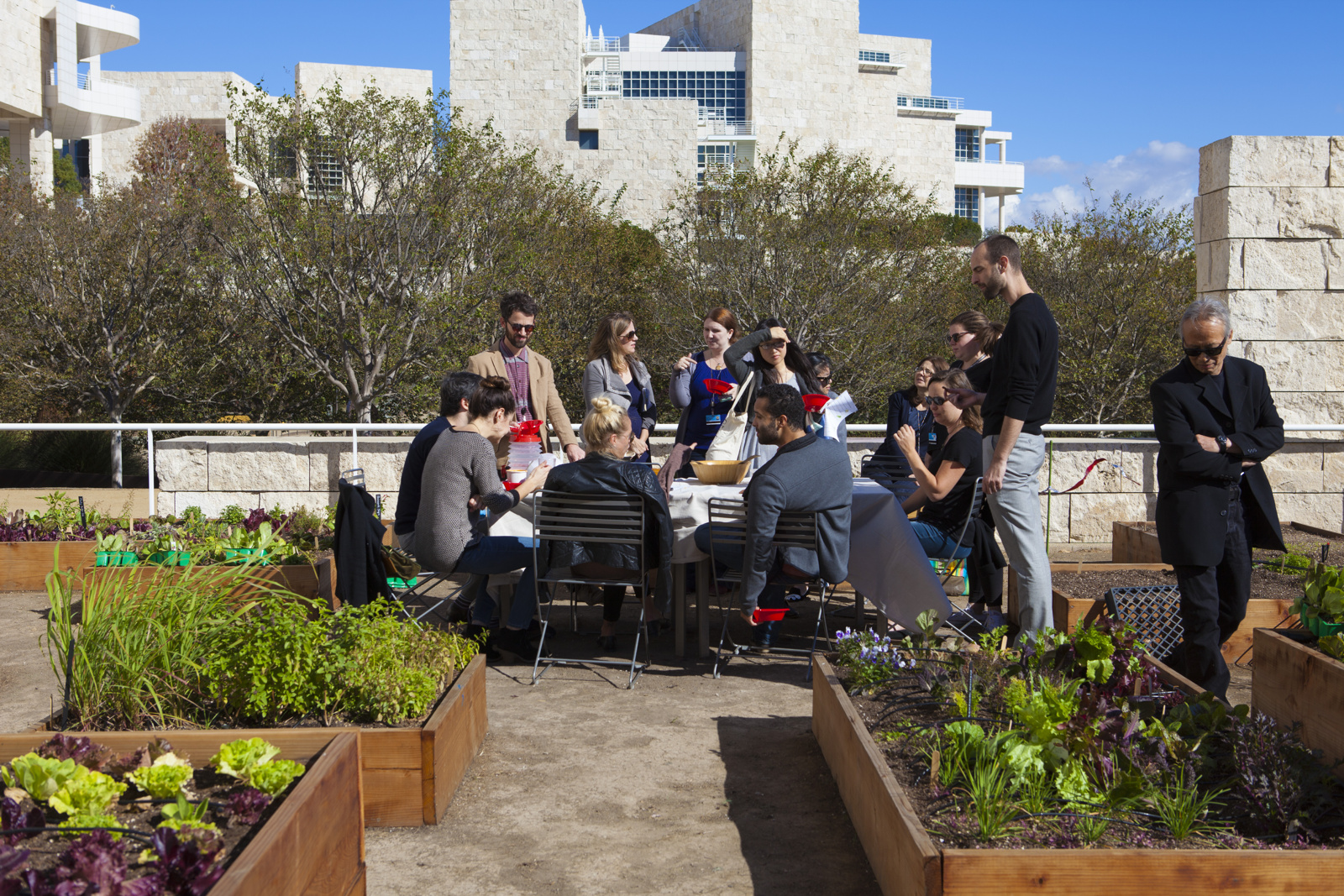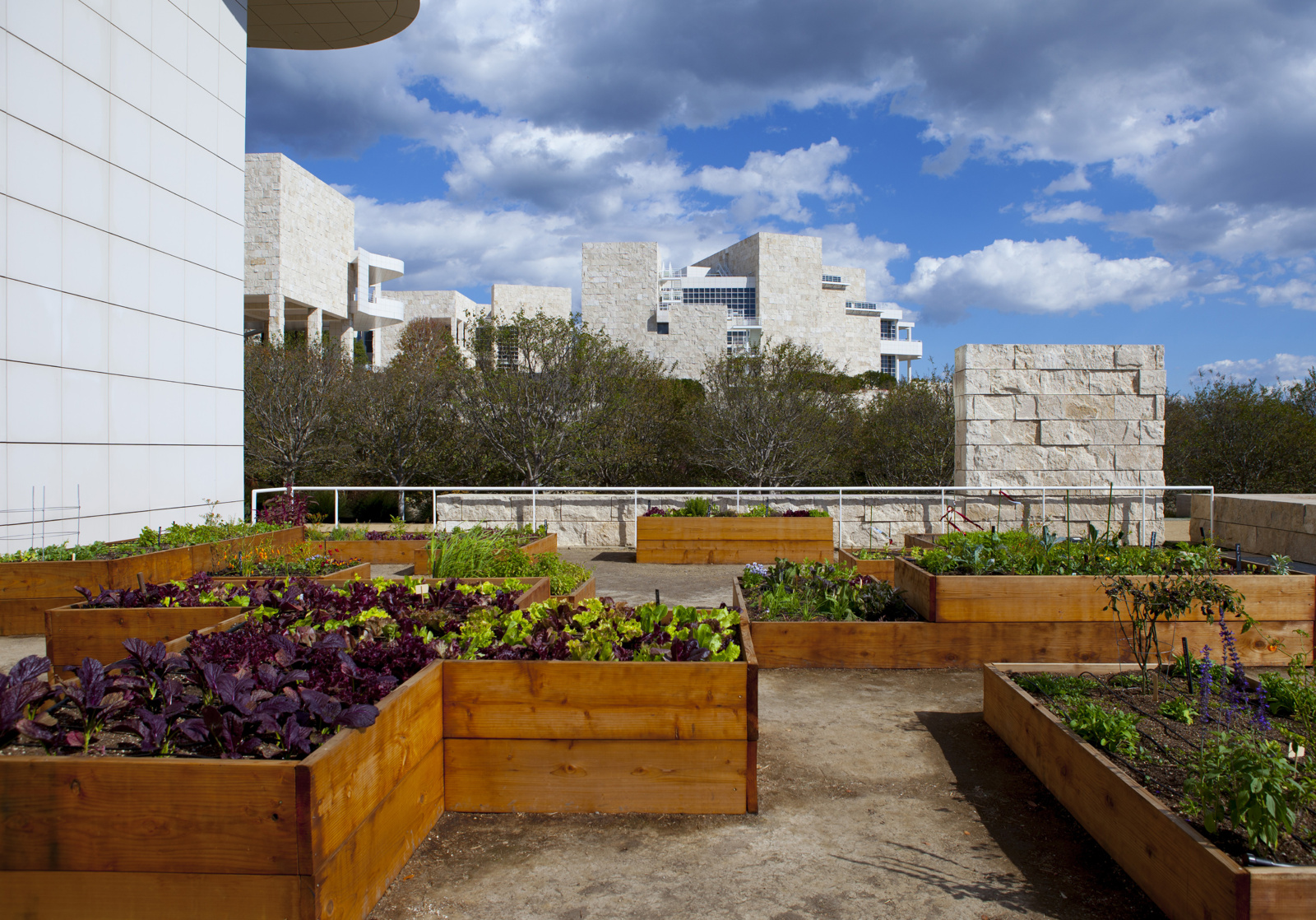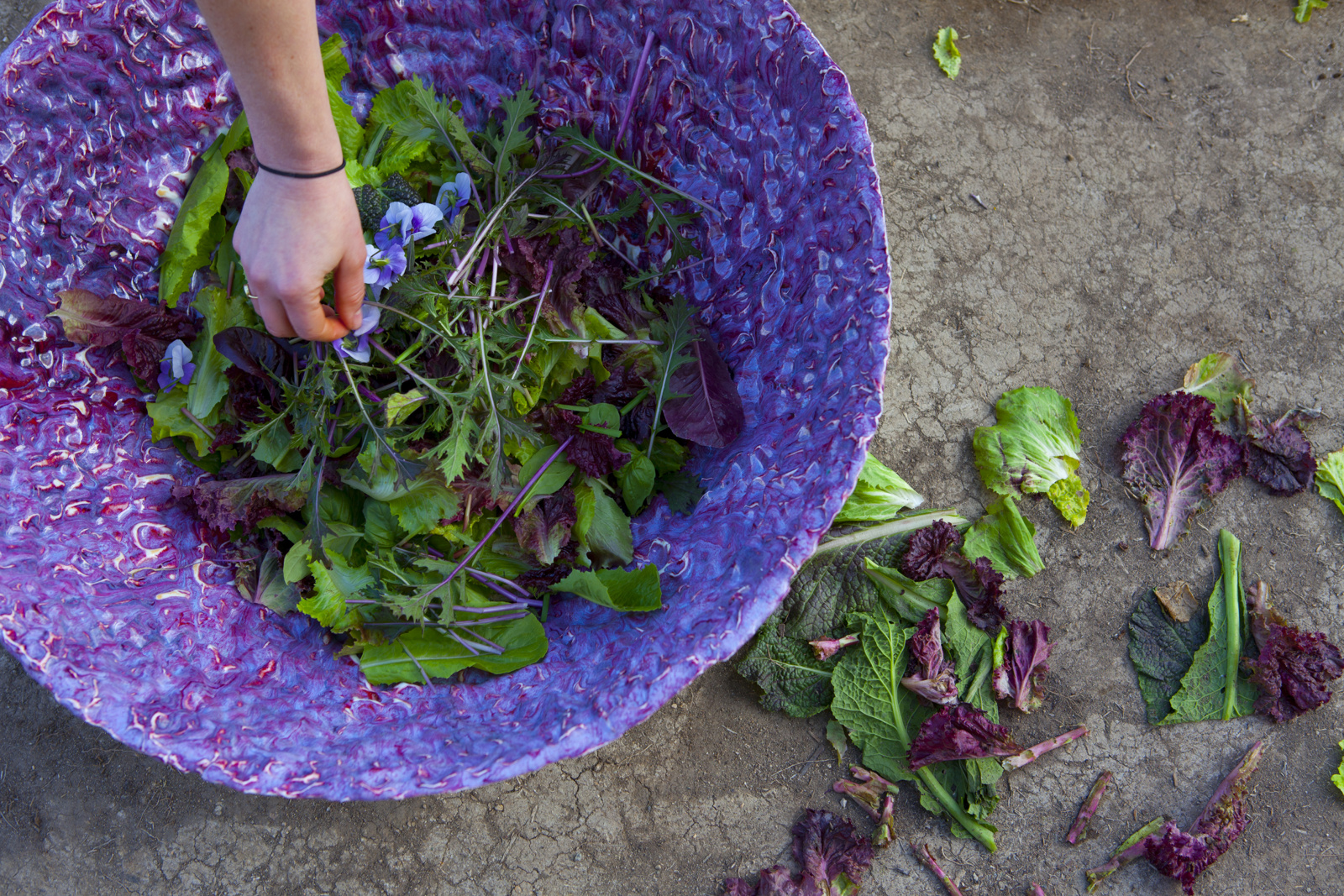September 2015 - February 2016
Getty Center, Los Angeles
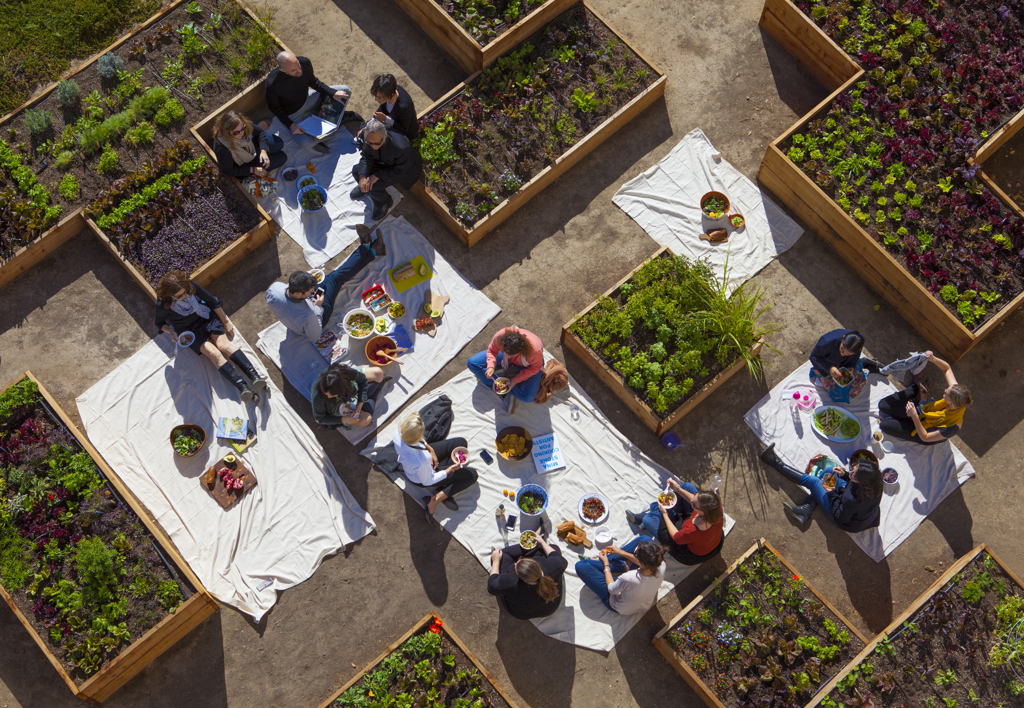
The Getty Salad Garden was an installation of organic heirloom vegetables and salad greens growing in raised beds at the Getty Center. The garden was a hub of activity while the fascinating history of art and food came together in two special exhibitions: The Edible Monument: The Art of Food for Festivals, and Eat, Drink, and Be Merry: Food in the Middle Ages and Renaissance.
Presented by artist and writer Julia Sherman, creator of the popular blog Salad for President, the Getty Salad Garden is conceived as a dynamic platform for conversations, drawing together a wide variety of creative voices. Like the format of her blog, Sherman will invite a range of artists and creative guests to join her in harvesting and making salads, emphasizing that the simple act of cooking together can be the catalyst for fascinating conversations and a fruitful creative exchange. Through sharing their artistic and culinary interests and the surprising ways they intersect, the conversations reveal the potential for a simple salad to invigorate our creative lives. Throughout the fall, the Getty Salad Garden will serve as an unexpected, playful space for investigations into the historical material on display in the galleries, infusing it with contemporary perspectives.
For the project, Sherman collaborated with urban gardeners Farmscape Gardens, and art-historian-turned-landscape-architect David Godshall of Terremoto Landscape. Together they have designed a garden which thoughtfully responds to the Getty Center's architecture and landscape, and utilizes rare seeds, including 19th-century varietals, that help preserve agricultural and culinary heritage. The garden will be drip-irrigated, using dramatically less water than a lawn requires.
The Getty Salad Garden will support a variety of projects documenting the salads and conversations Sherman has with exciting members of Los Angeles's artistic community. Through student workshops, intermittent public hours, and small gatherings, the Getty Salad Garden explores the unique way gardens inherently foster community, and hopes to inspire new encounters between visitors, artists, gardeners, cooks, museum staff, and works of art.
